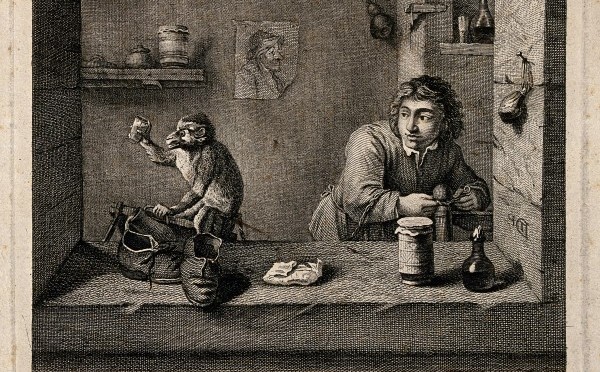Sometimes One runs across forgotten things in the nether regions of One’s hard drive. Today I can across this piece, an “abbreviated adventure novel” I wrote over fifteen years ago. Reading it again now, as I try to put the final touches on my ethnographic monograph, I’m struck by the continued sense of (w)rote formalism and disjointed narrative that constitute my attempts at describing contemporary life. Anyway here it is in its entirety: my first–still untitled–novel.
I.
He didn’t know, one way or the other, any way of getting there. Of course there was the usual way, but for that he didn’t have the stomach today.
“Charles, what’s the matter honey? Don’t you have to go?” Of course he did. That was known. If anything, knowing that was not the problem.
“What time is it?” he stalled.
“Time to go, or you’ll be late.”
Suddenly, something totally unexpected happened.
II.
Only later did it make any sense.
“You see, Turkmenistan had always had rather vague borders, let alone after the recent business with the Shah. How else could One be expected to respond?” he said in the most surprisingly perfect English you’ve ever heard. And after that, everyone could see the reason for his actions.
A jolly good laugh was had by all.
III.
Meanwhile, back on the homefront, Gina had been waiting seventeen years for the #52 bus to come down Balmora Avenue and was beginning to wonder if it ever would. However, being recently informed of the exploits of Col. Major Thomas Waterpaint IV in the hitherto unexplored regions of the Belgian Congo and the peripheral Asiatic Caucasus, she took it upon herself to summon the intestinal wherewithal to initiate a maneuver of her own accord, on par with anything the above-mentioned hero had yet seen fit to dare.
“Miss Linda,” she called out. “I don’t think I’m ‘bout to set here and wait for the #52 Balmora Avenue Bus today,” as she ventured her foot, attached to its stout ankle away from her place on the curb.
“But Miss Gina!” Linda called out in the wrong direction, facing not the target towards whom her warning was aimed but down the row, her eyes reflecting the terror of what was appearing over the horizon.
IV.
And so forth.
V.
“However, there is still one thing I do not understand, my dear Col. Major,” he said as he pored exactingly equal portions of an unspecified mixture of liqueurs into an unspecified number of vessels, “and that is how you could have possibly known what the Turk had been planning in the first place.”
“Quite simple, Mr. Harberry” he said venturing a sample from the proffered drinking vessel. “Once I had heard of the unfortunate occurrences on Balmora Avenue, I knew there was only one possible course of action.”
“Indeed!” slurped Mr. Harberry.
“Yes, indeed” smirked the Countess, her haired pulled back tightly.
THE END



 Sade, Fourier, Loyola
Sade, Fourier, Loyola 


